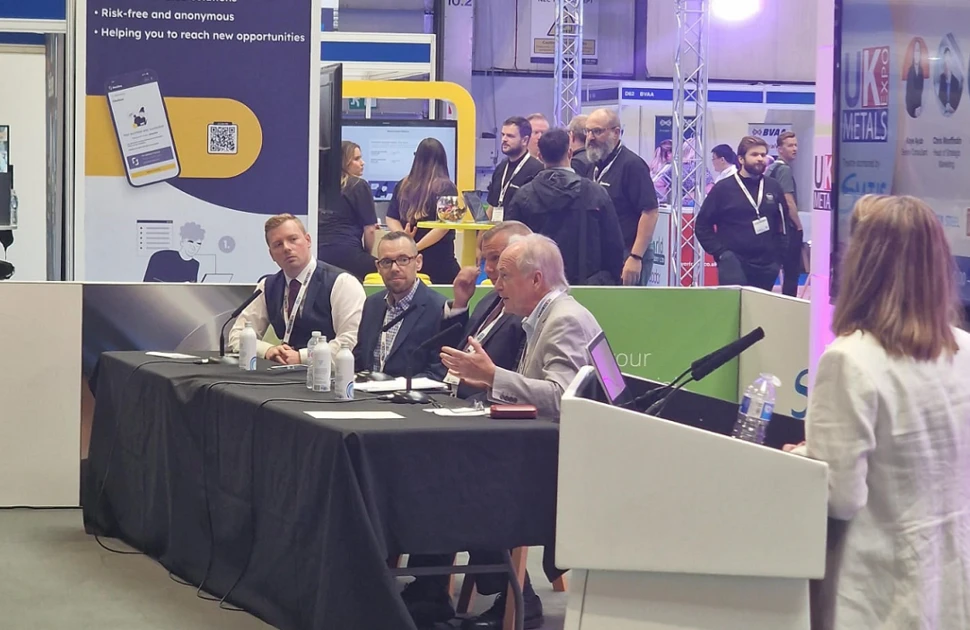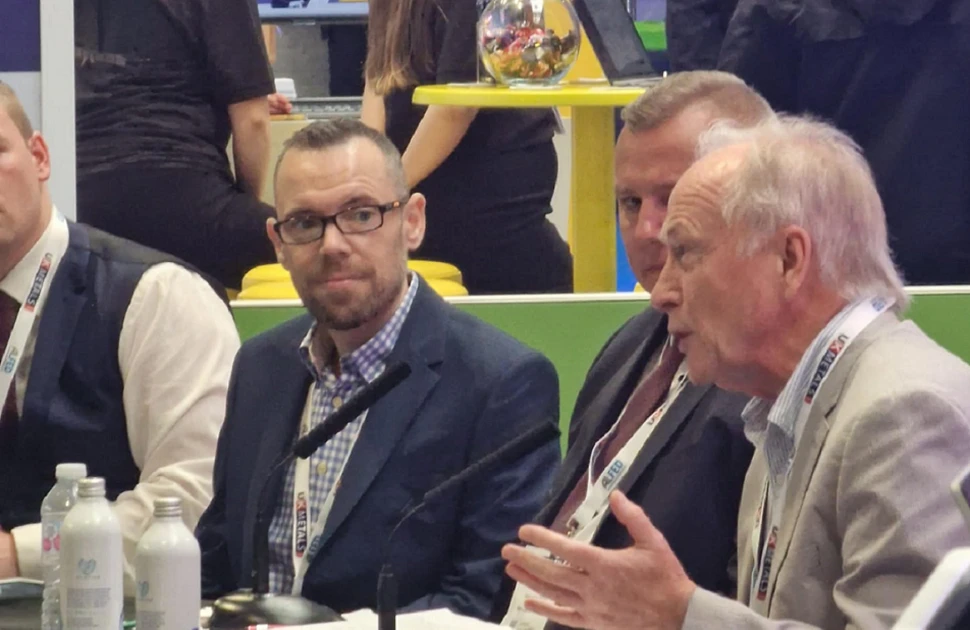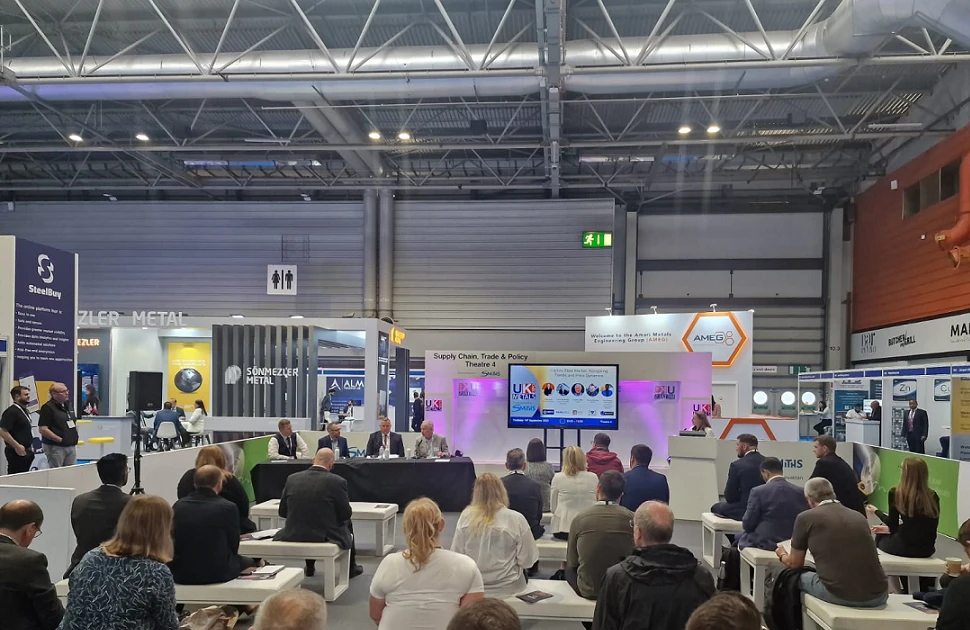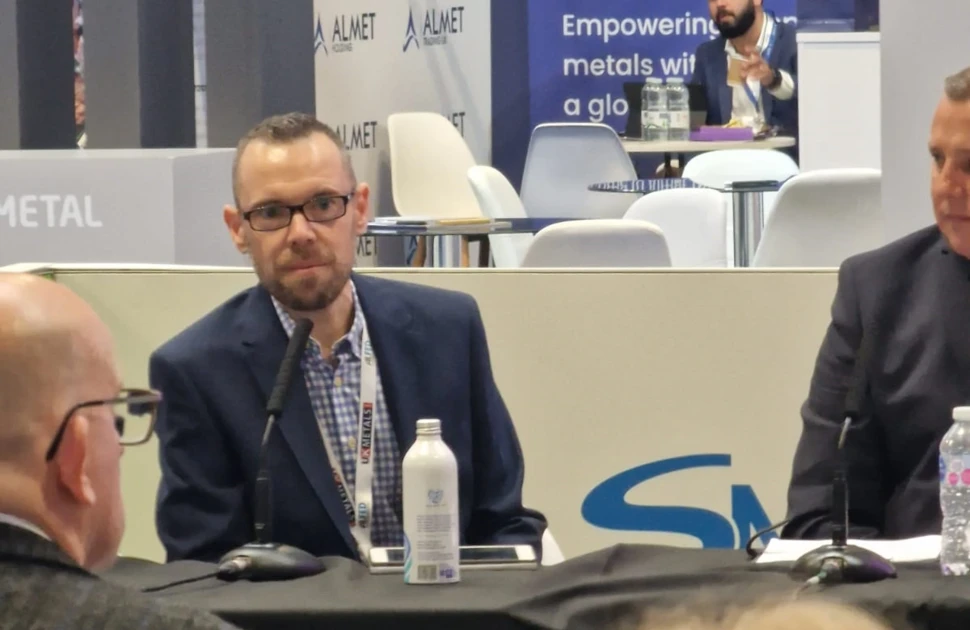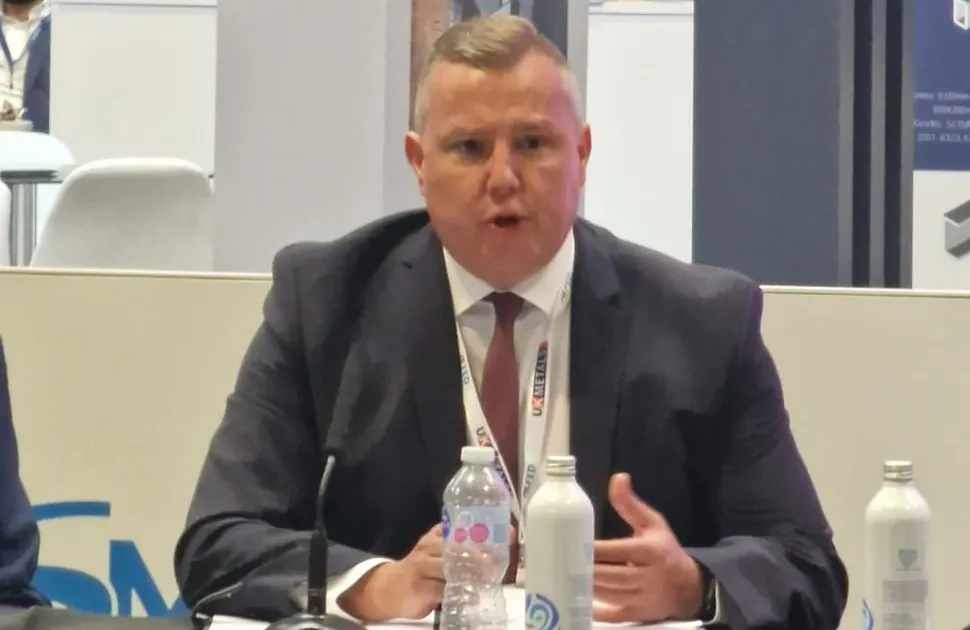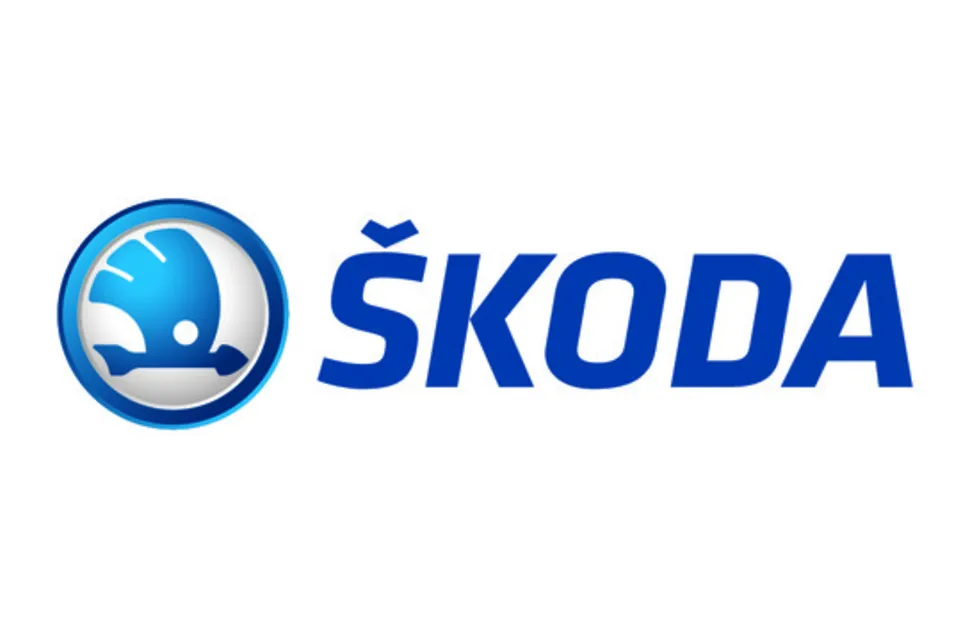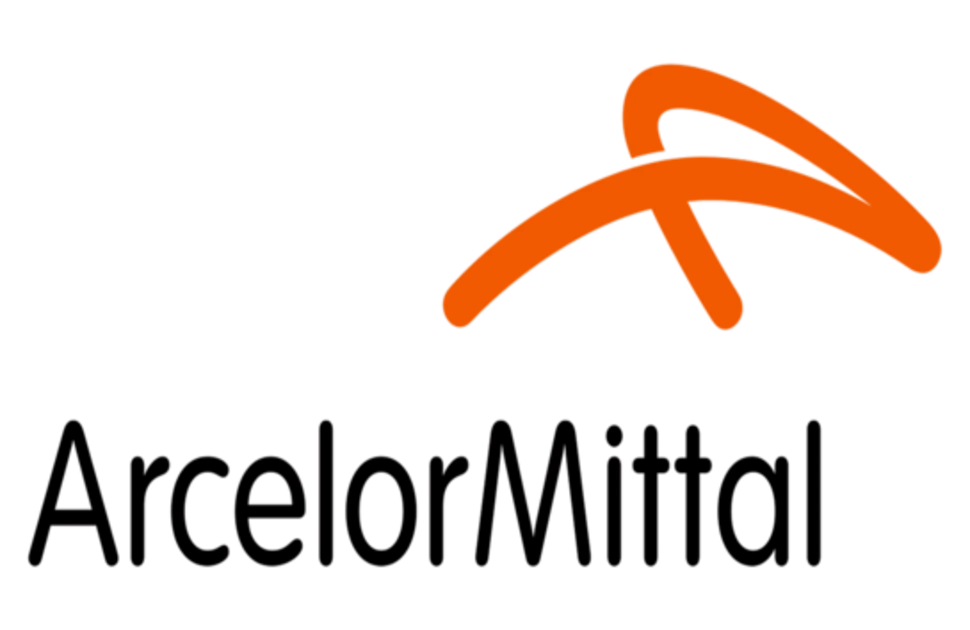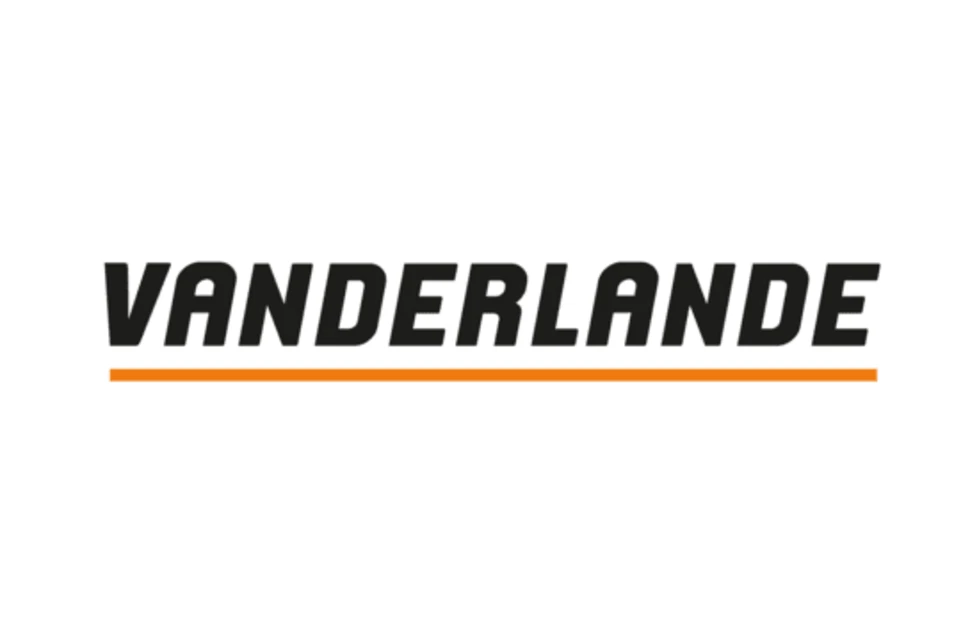UK steel imports resemble ‘a python swallowing a goat’
UK steel market participants have been urged to have their say on an import quota system that triggers a scenario similar to “a python swallowing a goat” on a quarterly basis.
International Steel Trade Association (ISTA) president Godfrey Watt highlighted flaws in the current quota system in a debate hosted by MEPS International senior consultant Kaye Ayub at the UK Metals Expo 2023.
The UK government opened consultation over the extension of its steel import safeguard measures at the start of September and Watt said it was vital that market participants had their say.
“When you have quotas which expire quarterly, you get a surge of imports for people worried about the next quarter going bust and then getting lumped with a 25% duty”, Watt told delegates at the NEC Birmingham.
“Currently you get this situation that is rather like a python swallowing a goat. You get a lump, then nothing, then a lump and that's not good in any respect.”
Watt added: “Everybody who's involved in the supply chain should be looking at this and having their say.”
MEPS International’s full ‘Carbon Steel Market: Navigating Trends and Price Dynamics’ panel debate is now available to listen to on-demand via the UK Metals Expo website.
The panel debate covered a wide range of topics, including the EU’s incoming Carbon Border Adjustment Mechanism (CBAM) and the need to decarbonise the UK steel industry.
Watt was joined on stage by Tata Steel UK head of strategic marketing Chris Wooffindin, Van Leeuwen managing director Kristian Bowling and Brown McFarlane international business development manager Paul Murphy.
Decarbonisation and the impact of CBAM
Wooffindin was speaking the day before the UK government agreed on a £500 million support package to assist Tata Steel’s £1.2bn switch from blast furnaces to electric arc furnaces at its Port Talbot steelmaking facility in South Wales.
He said: “We do need a decarbonised steel offering in the UK. Many of our customers are demanding that. They need the green steel solution to help their transition towards a net zero situation. Also, having a local domestic supply will be a massive advantage to UK PLC. It's not just ourselves, it's for everyone.”
Murphy, however, suggested that the UK government’s investment to decarbonise domestic steelmaking was “still behind the curve” compared to counterparts in the EU.
And Wooffindin also expressed concern about the cost of energy in the UK, compared to countries elsewhere in Europe.
This, he said, could ultimately impact decisions about what steel products could be produced in the UK.
The pace of decarbonisation will impact steel consumers in the coming months, as CBAM’s introduction gets underway.
The reporting of the carbon emissions embedded in steel products entering the EU begins on October 1. Although tariffs and fines are not initially being imposed, Murphy asserted that “the bottom line is there's going to be a price increase somewhere”.
Bowling believed that CBAM would benefit Western Europe’s steel industry in the longer term. He said: “We've talked a lot about transferring steel production to low-cost countries that maybe don't have the same regulations in place. This is designed to move away from that and certainly on the lower value steel items. The transport alone from moving the product halfway across the world has a large carbon footprint so actually, if it's done correctly and we invest correctly, CBAM will benefit the UK steel industry.”
Wooffindin highlighted the “onerous data requirement” posed by CBAM’s emission reporting stipulations. He added: “My recommendation is to look at it now and really get your house in order, especially if you're going to start importing into the European Union.”
Carbon steel market outlook
The impact of politics and the automotive sector’s shift to electric vehicles (EV) were debated as panellists at the UK Metals Expo discussed the outlook for the steel sector.
Speaking ahead of the UK Government’s announcement that it intended to put back its ban on the sale of new petrol and diesel cars from 2030 to 2035, most suggested certainty was needed if the steel sector was going to benefit from a strong automotive sector.
High interest rates resulted in a generally negative outlook for construction, while renewable energy projects, oil and gas, and agricultural equipment were seen as potentially stable sectors.
Wooffindin expects the market’s recovery from its current low demand to take time, however, and sees other influences playing a part. He said: “We have some major elections in the US and the UK, which are often powerful in terms of sentiment and people's perception of demand. So, I see next year as a transitional period with real demand kicking on from 2025 onwards.”
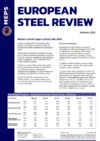
Source:
European Steel Review
The MEPS European Steel Review is an informative, concise and easy-to-use monthly publication, offering unique professional insight into European carbon steel prices.
Go to productRequest a free publication